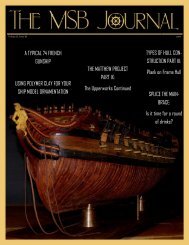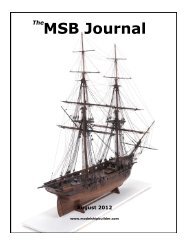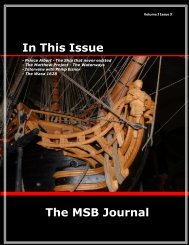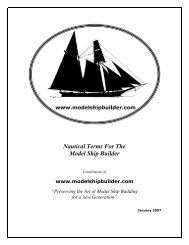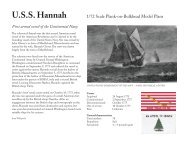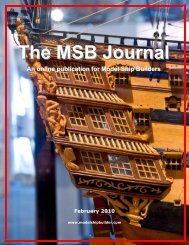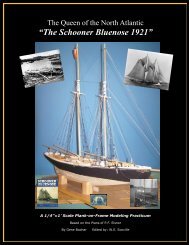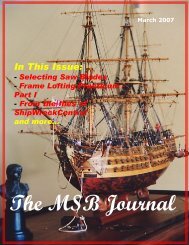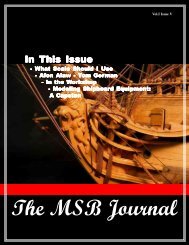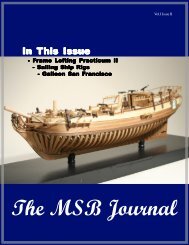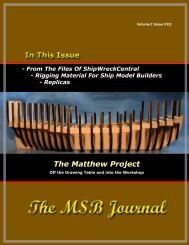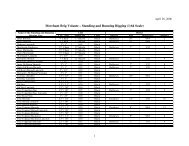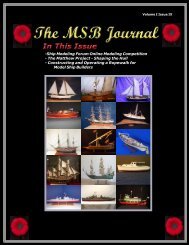April - Model Ship Builder
April - Model Ship Builder
April - Model Ship Builder
Create successful ePaper yourself
Turn your PDF publications into a flip-book with our unique Google optimized e-Paper software.
Tidbits from the Past by Gene Bodnar<br />
In George Jones‘s ―Sketches<br />
of Naval Life,‖ a book written<br />
in 1829, he records the<br />
cheering given to Lafayette<br />
as he departed from the<br />
U.S.S. Brandywine as he<br />
went ashore in France after<br />
his last visit to the United<br />
States. In the same book,<br />
Jones records the three<br />
cheers given when Captain<br />
Patterson received command<br />
of the U.S.S. Constitution.<br />
4<br />
“Hip, Hip, Hooray!”<br />
Not long afterwards, the<br />
cheering became a command<br />
called ―Manning the<br />
Yards and Cheering.‖ It<br />
consisted of three separate orders. At the order, ―Lay aloft,‖ all hands would spring up the<br />
rigging, gather round the tops, crosstrees, and topgallant masthead. At the second command,<br />
―Lay out upon the yards,‖ the men would support themselves by means of life lines<br />
that were fastened to the lifts and masts. Finally, the order ―Cheer‖ is issued. The men<br />
would then take off their hats and wave them while shouting three cheers.<br />
Manning the rail and cheering is a very old custom recorded as early as 1596. At the<br />
sounding of the master‘s whistle, men would give ―a marvelous shout, with as much mirth<br />
and rejoicing as they can.‖<br />
On the other hand, the U.S. Navy Regulations of 1920 state that ―Cheering shall not be<br />
given any officer.‖ Instead, officers are saluted.<br />
Today, national salutes are based upon the equality of sovereign states, but in times gone<br />
by, the weaker saluted the stronger, and the stronger usually saluted the country which<br />
claimed jurisdiction over the waters he entered.<br />
The old English Navy demanded respect from foreigners and English merchantmen. In<br />
1638, the captain of the H.M.S. Nicodemus was given severe punishment for not having<br />
enforced a French ship of war to salute him. In another instance, an English merchant ship<br />
was fined 500 pounds for now lowering its topsails to Charles‘ fleet.<br />
Cheering and saluting have long been a maritime customs of respect.<br />
www.modelshipbuilder.com



